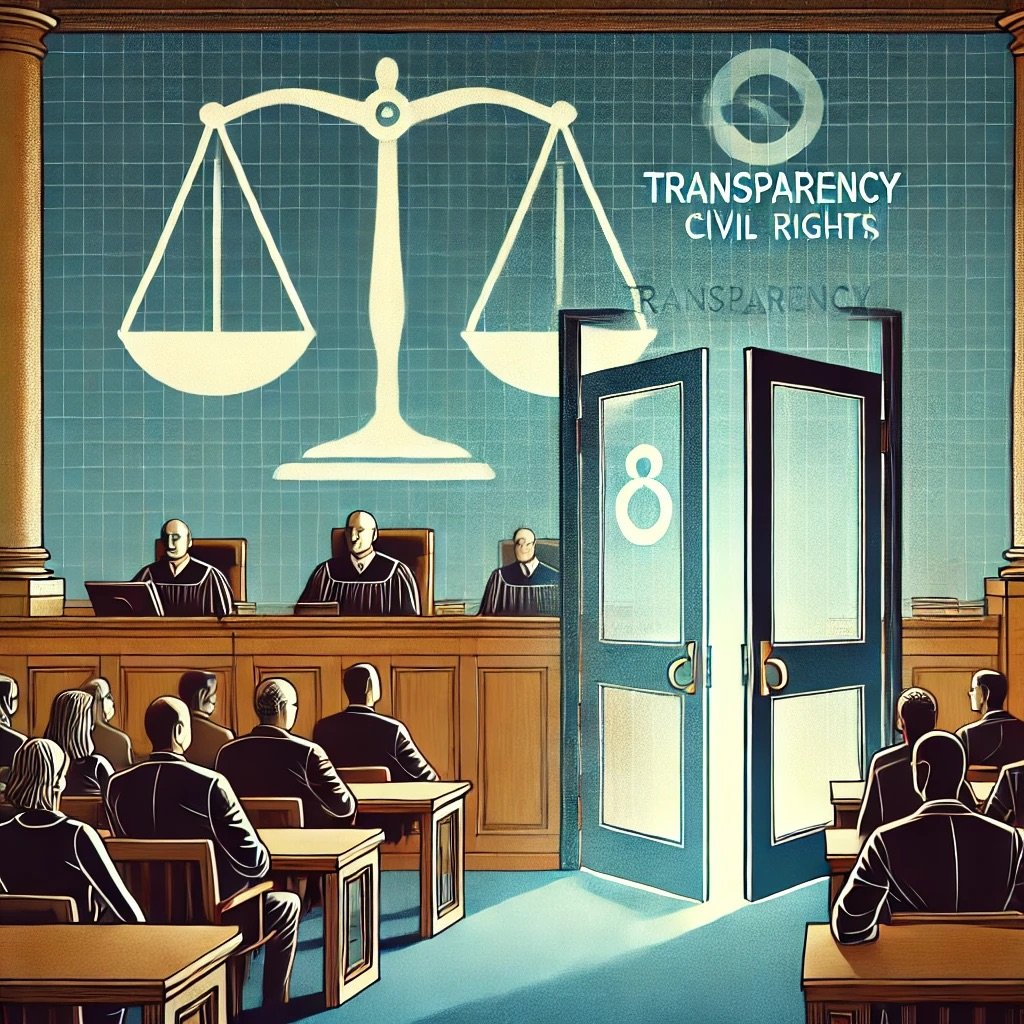Durham, NC – A federal lawsuit filed this week by the Washington, D.C.-based Civil Rights Corps (CRC) is challenging practices in Durham’s dependency court system that the group says undermine transparency and public accountability. The complaint targets District Court Judge Doretta Walker and Sheriff Clarence Birkhead, alleging that the officials routinely block public observers, including CRC staff, from attending hearings where life-altering decisions about parental rights and child custody are made.
The lawsuit claims that CRC representatives have been repeatedly escorted out of Judge Walker’s courtroom by sheriff’s deputies, with “CLOSED HEARING” signs posted to bar entry. Attempts to obtain transcripts of exclusion orders have also been denied, according to the filing. CRC attorney Elizabeth Rossi argues these actions violate the First Amendment’s presumption of open courts.
“Almost every single time that we have tried to observe court proceedings in Judge Walker’s courtroom, we’ve been kicked out without any chance to explain why we’re there, without any justification,” Rossi said.
The CRC, a nonprofit that monitors court systems nationwide to expose injustices, began focusing on Durham’s dependency courts in 2022 after reports surfaced of inefficiency and systemic issues. Local advocacy groups, including Operation Stop CPS, have long criticized the courts for penalizing parents based on poverty-related issues and for what they describe as a lack of due process.
Advocate Amanda Wallace, a former Child Protective Services investigator and founder of Operation Stop CPS, has been outspoken about the need for reform. Wallace, who left her CPS position in 2020 after being required to remove a child she believed was safe at home, described the dependency court system as a hidden mechanism of oppression.
“The courtroom is the new auction block,” Wallace said. “What they’re trying to hide is the evolution of slavery. If the public could sit inside the courtroom, they’d see—wait, this child was taken away because the parent didn’t have childcare? Can we not figure that out without taking their child?”
For parents navigating these proceedings, community support is often critical. Durham mother Sharrocka Pettiford, who has been involved in dependency court since 2019, recounted feeling isolated and hopeless in hearings where Judge Walker frequently closed the courtroom to supporters. Pettiford credits organizations like Operation Stop CPS with providing emotional support during these difficult experiences.
“When my community is allowed to be there, it’s everything,” Pettiford said. “Even though they’re just sitting in the audience, I feel that support and that love, and it means a lot.”
The CRC’s lawsuit seeks to establish clearer protocols for closing courtrooms, requiring Judge Walker to justify any exclusions with specific, on-the-record findings that demonstrate the necessity of closure. It also seeks to stop Sheriff Birkhead from enforcing what the organization calls “unconstitutional courtroom exclusion orders.”
Durham’s dependency court practices have drawn scrutiny from advocacy groups concerned about systemic biases and lack of oversight. The case could have significant implications for how public access to family court proceedings is balanced with privacy considerations. While Walker and Birkhead declined to comment, the legal challenge has already reignited conversations about transparency and fairness in the judicial system.
The Bull City Citizen will continue to follow this case closely, bringing our readers the latest updates as this important issue unfolds.












